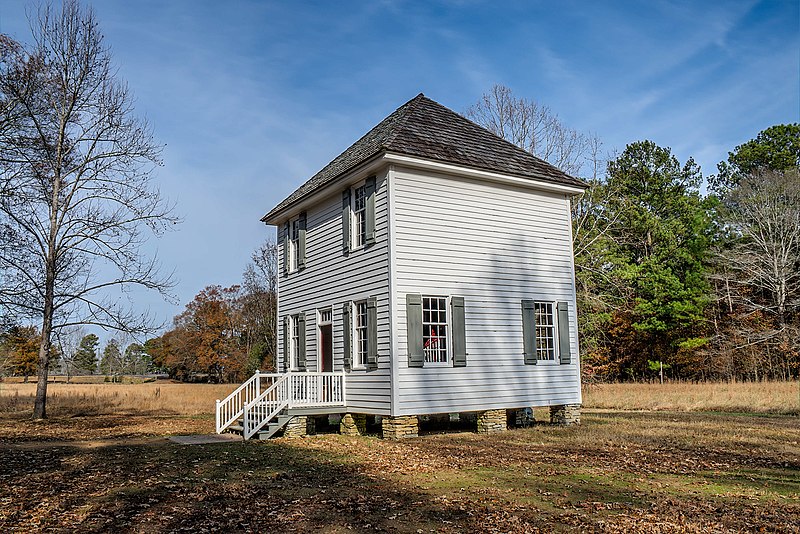I. Chief Justice John Marshall, in his 1832 decision in the case Worchester v Georgia:
The Cherokee nation, then, is a distinct community occupying its own territory, with boundaries accurately described, in which the laws of Georgia can have no force, and which the citizens of Georgia have no right to enter, but with the assent of the Cherokees themselves, or in conformity with treaties, and.with the acts of congress. The whole intercourse between the United States and this nation, is, by our constitution and laws, vested in the government of the United States.
Worchester was a missionary who lived in New Echota, the Cherokee capital at the time. He and some colleagues were attempting to help the Cherokee challenge encroachment of their territory by the state of Georgia. Georgia had Worchester arrested and sentenced to hard labor for violating a law that forbade white missionaries from living in Cherokee territory without a license from the state. The Cherokee, on the other hand, viewed it as their decision – and their decision alone – who would be allowed to live in their territory. The case made its way up to the Supreme Court.
The decision, if had been enforced, would have thrown a wrench into the gears of the State of Georgia’s plans to expropriate all Cherokee territory in the state. But it was not enforced, although the decision subsequently became one of the foundations of the current legal theory of Native American sovereignty.
II. A reconstruction of the court at New Echota:

The original court building did not survive the removal of the Cherokee to Oklahoma in 1838 and 1839. Oddly, Worchester’s house in New Echota did.








